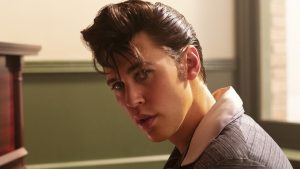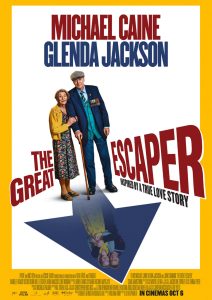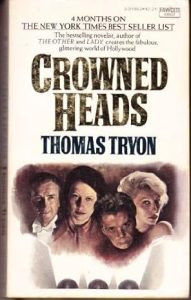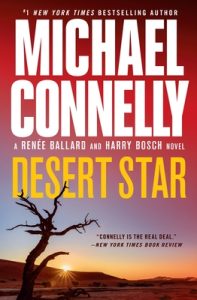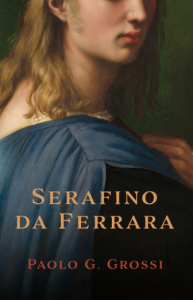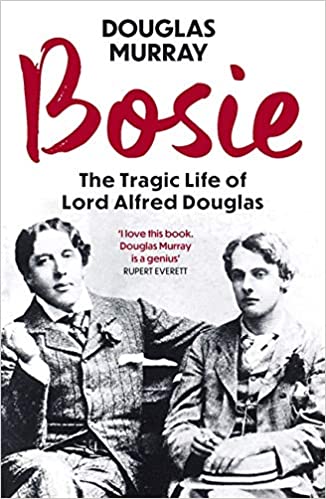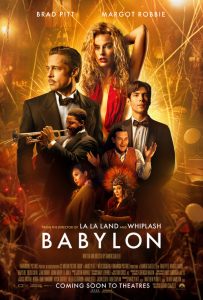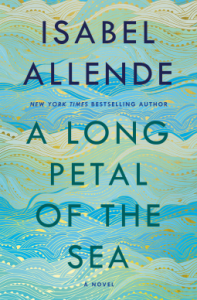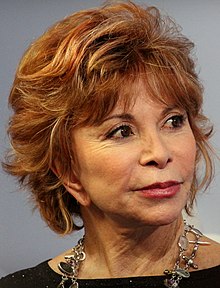David at the movies: Goodbye to a magnificent actress
The Great Escaper
This is mainly going to be remembered as Glenda Jackson’s last movie, and what a glorious swansong it is. Her ancient, heavily lined face – far removed from the face of Elizabeth the First, the role that sealed her stardom in 1971 – conveys shades of emotion that not all actresses can hint at. She’s playing Irene Jordan, the wife of Bernard (Michael Caine) who has gone AWOL from the care home in which they live, taking himself off to Normandy to attend the 70th anniversary commemoration of the D-Day landings.
This is another of those small movies with a big heart. Nothing very dramatic happens (apart from brief flashbacks to D-Day which Bernard’s best pal did not survive). John Standing has a nice supporting role as another veteran who takes Bernard under his wing; there was a hint of camp in Standing’s performance, which made me think an LGBT ‘attitude’ moment could and should have been shoe-horned in.
Michael Caine has weathered the years better than Jackson (or he’s had some work done, which Glenda very clearly has not). His performance is not quite as subtle as hers, but this is a beguiling and totally believable reconstruction of an episode which made the papers back in 2014. A couple who have loved each other for seventy years are two people you have to take your heart.
* * * * * * * *
RIP Glenda, one of the finest actresses Britain ever produced. And Happy Retirement to Sir Michael, who has given us a great deal of pleasure in a long and splendidly wide-ranging screen career
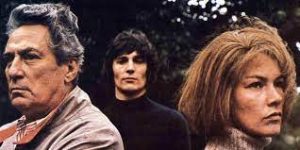
What I’m reading: The book that inspired my latest novel
Thomas Tryon: CROWNED HEADS
Crowned Heads, which dates from the 1970s, was one of the major inspirations for my own Hollywood novels Soap Stud & Blue-Movie Girl (published this year under my other pen-name David Godolphin) and Howl and the Pussy-Kat (still editing with a view to publishing next year). Re-reading Crowned Heads after forty-plus years, it’s still one of the great Tinseltown tales, if perhaps not as exquisite as I remembered it.
Fedora, the first of four linked novella-length stories, is the best and was memorably filmed by Billy Wilder (his last movie in 1978). Fedora is a Garboesque Hollywood legend who comes back from a period of seclusion more beautiful – and a better actress – than before. The explanation, narrated to an interviewer like one of Anne Rice’s vampire sagas, is a bit too slow.
Lorna is Lorna Doone (that name is unforgivable!) is a burnt-out star whose life falls into a haze of booze and sex on holiday in a second-rate hotel in a third-rate resort in Mexico. Lots of candidates for the inspiration here whom it would be ungentlemanly to name – she may be an “amalgam”. This too takes a long time to reach its gloomy climax.
Bobbitt is the former child-star forever trapped in the role he outgrew. Mickey Rooney and even Shirley Temple could be sources here. Repetition spoils this one.
Willie (another unfortunate name to an English ear) is Willie Marsh, an elderly movie legend, clearly inspired by Ramon Novarro, whose home, a shrine to his dead but still dominating mother, is invaded by a trio of creepy hippies. This takes Thomas Tryon back into the horror territory where he first made his mark as actor-turned-writer. The invasion scene is far too protracted and its inevitable conclusion goes way over the top.
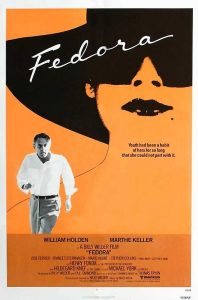
Four distinct tales, richly original and yet echoing true events in the life of Movieland. They constitute four ‘obituaries’ from Hollywood’s Golden Era. The writing is a long way from the brisk blunt prose of Jackie Collins and becomes over-ripe in parts, but this is quintessential Tinseltown: art imitating life imitating art. A must-read for La-La Land buffs if you’ve missed it; it’s on Kindle but the print edition is only available second-hand.
You can read the first chapters of David Godolphin’s Hollywood novellas Soap-Stud & Blue-Movie Girl on my website: www.davidgeebooks.com
Harry Bosch – nearly his last case
Michael Connelly: DESERT STAR
A new Harry Bosch crime story used to be an annual highlight. Now we have to share him with LAPD’s Renée Ballard and (not every year) Mickey Haller, “the Lincoln Lawyer”. In Desert Star Bosch and Ballard are given alternate chapters as they investigate two cold cases: a rape/murder from 1994 and the brutal killing of a whole family a year earlier, whose bodies were buried in the desert.
New forensic evidence from DNA plays a crucial role, but re-interviewing witnesses and suspects is the most effective way of digging slowly toward a resolution. Both cases bring Harry into deadly confrontations, and you may begin to think, as I did, that Michael Connelly is getting ready to kill off his hero, our hero.
Because Ian Fleming didn’t kill him off, James Bond’s life and career has been placed in the hands of other writers, some as gifted as Fleming, some woefully talentless. Peter O’Donnell sent Modesty Blaise and her sidekick Willie Garvin on a final, fatal mission: the best option in my view.
007 clearly perished – heroically, of course! – at the end of No Time to Die. It will be interesting to see how the writers manage to resurrect him in the next movie, after they resolve the increasingly tiresome saga of naming Daniel Craig’s successor. Chrisopher Lee’s Dracula had almost as many lives as a cat; his ashes were easily reassembled (fully dressed, every time!). James Bond is clearly hallmarked for immortality.
We must perhaps brace ourselves for the death of Harry Bosch within the next book or two. Desert Star is not one of Connelly’s best tales, the pace is a bit slow and Ballard fails to come to life on the page in the way that Bosch always does, but the story has two thrilling climaxes and Harry Bosch reaffirms his status as the most believable of all investigators.
What I’m reading: Erotic tales across the centuries
Paolo G. Grossi: SEARAFINO DA FERRARA
In Renaissance Ferrara, young Serafino is talent-spotted as a promising artist and apprenticed to a series of high-profile painters, culminating in Michelangelo, who has been commissioned to paint a chapel ceiling for the Pope. Michelangelo, like other artists and apprentices, is jealous of Fino and abuses him. A new patron rescues him, and his love life acquires a new intensity.
500 years later, Parker Henderson, teenage son of the newly appointed American consul in Florence, falls intensely in love with a boy in his school class and uncovers a link to the sixteenth-century painter, whose home is now the consul’s residence.
Paolo Grossi’s first full-length novel is an easy, lightly erotic read. Stories written in the present tense tend to raise my hackles, and the author’s prose style here lacks the refinement that hallmarked his previous collection of Berlin stories. I would have liked a stronger contrast between the Renaissance scenes and the modern ones; the period dialogue needed to be a bit more archaic.
There’s a brief scene when the consul’s son is subjected to the attentions of an ageing celebrity painter, and the tone of the book changes subtly. I would have welcomed more of this, but the passionate encounters of teenage lovers across the centuries plainly have a stronger appeal to today’s readers.
What I’m reading: Lord Alfred – Oscar Wilde’s toyboy and nemesis
Douglas Murray: BOSIE
This detailed and thoroughly researched biography of Lord Alfred Douglas was published over twenty years ago, so mine is a rather late review. Bosie here comes across as a bitter, vindictive man torn between love and hate for Oscar Wilde, whose downfall was brought about as much by Bosie and his father as by his own love of life in the gutter (from where, as we know, there is a view of the stars).
The young Bosie has been accurately portrayed in all the movies: lazy, spoiled and petulant. He graduated from college flirtations to commercial sex with London rent-boys (then called ‘renters’). Wilde was going to seed by the time they met; Bosie’s infatuation was more for the playwright and wit than for the bedroom partner. But he loyally visited Oscar every day while he was awaiting trial for sexual offences after the collapse of his libel case against Bosie’s father, the Marquess of Queensberry.
Breaking an oath to his wife that he would not see Bosie again, Wilde was reunited with him in Rouen after his release from prison. They lived for some months in a rented villa near Naples where Oscar wrote ‘The Ballad of Reading Gaol’, his last work, and Bosie wrote some of his best poems. The pair were forced to separate when first Mrs Wilde (reverting to her maiden name Constance Holland) and then Bosie’s mother withdrew their financial support.
Bosie did not see Wilde during his last days in Paris in 1900, but he paid for Oscar’s funeral. Less than two years later he married Olive, a fellow poet with (some say) lesbian leanings. They had a son who ended up in a mental hospital, and although the marriage failed they remained friends and confidants until Olive’s death in Hove in 1944 (Bosie died, also in Sussex, a year later).
Douglas Murray believes Bosie ‘went straight’ after he converted to Catholicism and married Olive. But he never could not let go of the past. He wrote several books about his relationship with Wilde and got involved in a long series of libel cases, many centred on Robert Ross, Oscar’s ‘ex’ from way back who deserves much of the credit for safeguarding Wilde’s legacy, the plays. Bosie edited a series of short-lived literary magazines and ‘discovered’ some notable poets, including Siegfried Sassoon and Rupert Brooke. He took against the emerging modern poetry after the Great War and especially hated T.S. Eliot, never missing a chance to slag him off in letters to, among others, Bernard Shaw and Marie Stopes!
Murray’s major achievement is perhaps in arguing the case for Bosie to be recognized as a poet of some significance. Several critics of the time (and again when he was republished in the 1950s) rank Alfred Douglas’s sonnets alongside Shakespeare’s. How highly is he rated today? His early poems (many invocations to ‘the love that dare not speak its name’) are a bit twee. The middle ones are vituperative, reflecting his long period of litigiousness. Then sanctimony gets the better of him as he becomes an increasingly hardcore Catholic and denounces homosexuality.
This is not an easy book to read, especially for non-poetry lovers. Full of a queeny bitchiness and endlessly self-pitying, Alfred Douglas was neither lovable nor likeable. In death as in life, Bosie gets co-star status in the drama of the rise and fall of a great literary figure.
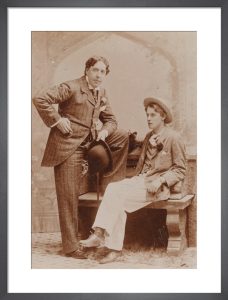
David at the Movies: I hated this
BABYLON
In the opening scene of Babylon an elephant on a pick-up empties its bowels over one of its handlers. This, I’m sorry to say, sets the tone for much of what follows. This is a long movie – three hours, much of which is crap.
Writer/director Damien Chazelle, who gave us La La Land a few years ago, turns the clock back to the 1920s when “Hollywoodland” was transitioning from silent pictures to sound. Brad Pitt and Margot Robbie play two leading actors who flounder during this period of adjustment, cast in a series of tawdry flops. Diego Calva and Jovan Adepo play a Mexican production assistant and a jazz trumpeter whose careers briefly flare. All four stars make the best of their roles despite the chaotic screenplay. Robbie’s damaged character, a stock favourite, fuelled by addiction to cocaine and gambling, is overdone and risks losing the viewer’s sympathy.
Orgiastic parties and a weird scene in a mountain torture palace presided over by Tobey Maguire in overdrive bring echoes of historic Babylon and some of the weirder extremes of early Hollywood. And there are many references to Singing in the Rain, that gem of a film set in the same era as this mash-up – one of the all-time greatest movies. With its messy script, erratic direction and uneven editing, Babylon is in an altogether different league. I can’t think of a picture I’ve hated as much as this. Sorry!
What I’m reading: Another epic romance from Isabel Allende
Isabel Allende: A LONG PETAL OF THE SEA
Spain 1938. Victor Dalmau, a trainee doctor, flees the civil war that is tearing his country apart. He escapes over the mountains with Roser, a gifted pianist pregnant by his brother who is one of the thousands of victims of Franco’s remorseless tyranny.
From France the pair are evacuated to a new life in Chile. A deep platonic love – and Roser’s son – binds them, although they both have intense affairs with other people. Chile, like Spain, goes through turbulent times. The Marxist Salvador Allende (a cousin of the author) wins the presidency of Chile for only a few years before a military coup installs the brutal Fascist Pinochet regime, forcing Victor and Roser to seek exile again, this time in Venezuela.
In middle age their love for each other finds a new passion and a new depth. They return to Chile to live out their lives, despite the rigours of life under Pinochet. Better years lie ahead for Chile.
Isabel Allende writes beautifully, although in this book I felt her new translators did not quite serve her as majestically as their predecessors. A Long Petal of the Sea (the title is taken from a poem by Palbo Neruda, who appears as a character in the novel) is one of her greatest stories, up there with House of the Spirits and Daughter of Fortune (my two favourites): an epic story of love and loss played out against the changing tides of history. At her best – and she is at her best here – Allende is one of the greatest living writers. This is a romance both ‘of its time’ and timeless.
Putting Up With Parkinsons; Me Too
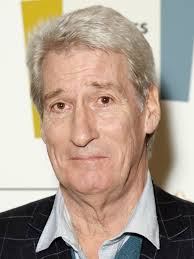
I’ve been doing some online research on Parkinson’s Disease, which like Jeremy Paxman I was diagnosed with last year. Paxman shared his story on ITV last night. The title ‘Living With –‘ was replaced by ‘Putting Up With Parkinson’s’, reflecting how Paxman feels about it. Me too, to borrow a slogan.
There are about 40 symptoms of PD and each patient gets their own ‘pick-n-mix’ selection. Paxman doesn’t seem to have the tremor which I have (left hand only so far and somewhat reduced since I was put on levodopa, the medication of choice) and which most of the other people in the documentary had to varying degrees. Jeremy has a ‘frozen face’ which so far I do not. I have difficulty vocalizing, which means I cannot do book-reading events any more; this seems not to be a problem for Jeremy and isn’t the reason for his retirement from University Challenge. Paxo feels tired all the time, as do I, and he can no longer operate a keyboard – I’ve gone from being a two-finger typist to a single finger, with many a bloop!
Vivid dreams and hallucinations are very common. A neurologist said that over 50% of sufferers develop psychosis. I have vivid dreams, often featuring dead friends and family members (Bruce Willis can play me in the movie!) but so far no hallucinations.
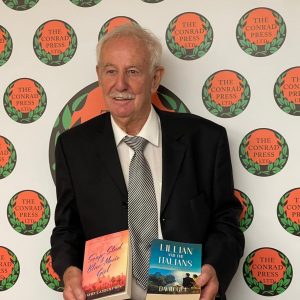
My online research threw up some grim statistics. The progression is usually slow with a gradual decline in mobility and agility (Jeremy, like me, already finds doing up shirt buttons difficult), but PD sufferers have an 80% chance of developing dementia after ten years. We are most likely to die from a fall or from pneumonia (presumably pneumonia brought on following a fall?). Paul Sinha, “Sinnerman” on ITV’s The Chase, who is in Year Three of PD, said he was diagnosed after a fall, as was Paxman. I was diagnosed because of my tremor, two years after my GP assured me that the tremor was “almost certainly not Parkinson’s”, so I don’t know if I’m in Year Two or Year Four. I’ve had four falls at home, the last of which saw me lacerate my scalp when I hit a door jamb – easy to see how such a fall could save me the fare for that one-way trip to Zurich.
Last week I lunched with a Brighton friend and his wife. He’s in Year Twelve of Parkinson’s and has been spared a date with dementia but he looked as if he’d been beaten up, following two falls onto his face in recent weeks. Parkinson’s, like Alzheimer’s, is not a pretty road to go down – I guess there aren’t any pretty roads in this area of terminal decline. £100 million in medical research has not yet found a cure, but more effective slowing-down treatments may be in the pipeline.
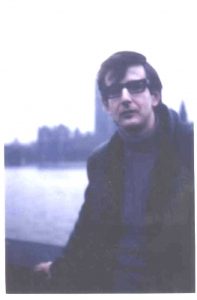
“Regrets, I’ve had a few, but then again –” My biggest regret is that I’ve been writing novels for sixty years and I’m still waiting to achieve serious sales as a self-published author or, best of all, get accepted by a mainstream publisher. I’ve always identified with Prince Charles, who had to wait more than sixty years to be King (on the plus side, I’ve been a ‘queen’ for more than sixty years!). I’ve got another novel waiting to go to print (the sequel to Soap-Stud & Blue-Movie Girl) and two more part written, including a follow-on to Lillian and the Italians and a book which does more justice to my mother as a main character (Lillian has elements of my mother’s life but not her spiritual journey). Hopefully, writing and peddling books will keep Alzheimer’s at bay.
Most people seem to live with PD for up to ten or twelve years. Keeping active is key, mentally and physically. As with dementia, the later years look more like a curse than a blessing. Watch this space. My guru of choice has long been Doris Day: Que sera, sera.
David at the movies: Marilyn revisited and reinterpreted
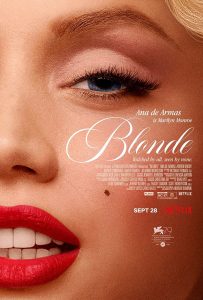
BLONDE
(Netflix)
This biopic of Marilyn Monroe is based on a fictionalized biography by Joyce Carol Oates, so we don’t know how much of it is reality and how much fantasy. Like The Crown, the script flies close to what we think we know as the facts. Early scenes depict Norma Jeane’s wretched childhood with an unstable mother who nearly burned them both to death and was then committed to a mental institution. All through her life this Marilyn is obsessed with the absent father whose identity her mother never revealed.
One brutal session on the “casting couch” presumably represents the many such ordeals Marilyn endured. Her first lover here is Charlie Chaplin Jr whose baby she reluctantly aborts in order to secure the lead in Gentlemen Prefer Blondes. There’s at least one more abortion and a miscarriage. She her husbands “Daddy”. Joe DiMaggio (Bobby Cannavale) is a nice guy but he turns into a wife-beater. Arthur Miller (Adrien Brody) is another nice guy; we’re not shown the break-up of this marriage. The one scene with JFK suggests that the President was not a nice guy in the bedroom. The conspiracy theories about her death are not played out here.
It’s a long, slow movie – almost three hours. Ana de Armas is a sensationally good look-alike and does the breathy voice perfectly. She is nude for much of the movie, which may be intended ironically but it gives Blonde a cruel hard edge. De Armas is dubbed in the re-staged songs – could they not have used the original soundtracks? Some clever CGI inserts the new Marilyn in clips from the actual movies, including the famous subway vent scene from The Seven Year Itch and some high spots from Some Like it Hot.
The screenplay brings out Marilyn’s serious side: she has read Chekhov and takes acting seriously despite all her neuroses and on-set tantrums. But except for the recreation of her famous comedy films, this is a consistently bleak movie, concentrating on Norma Jeane/Marilyn’s endless exploitation; she gets very few happy moments. For me, My Week with Marilyn gave a more rounded portrait of both the actress and the woman, highlighting her great comic talent as well as her instability. And Some Like It Hot is still my all-time favourite movie!
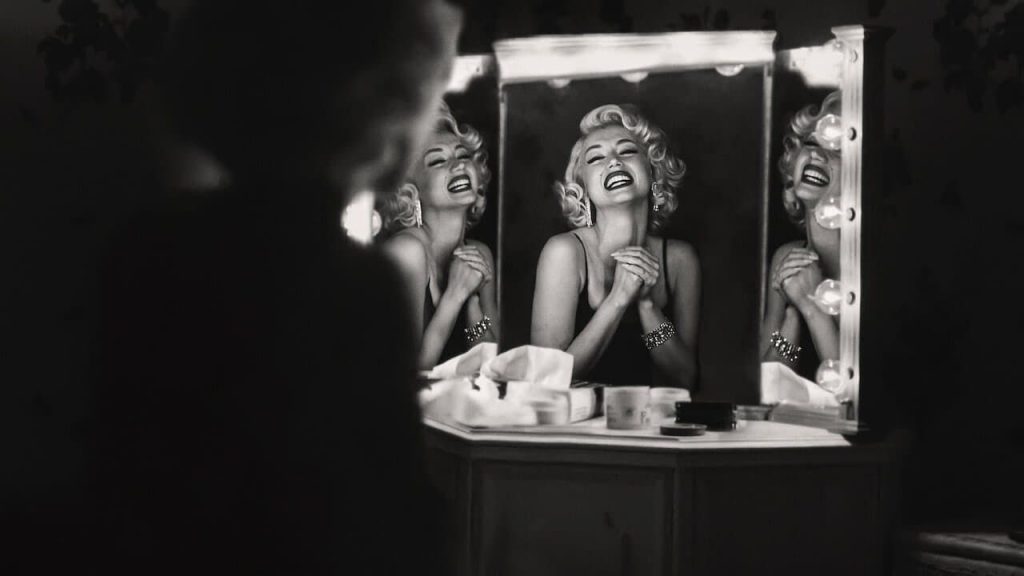
David at the Movies: the King lives on – as garishly as ever
 ELVIS
ELVIS
Mark Kermode’s rave review on BBCtv encouraged me to see this, but I wasn’t as blown away as he was. Austin Butler gives a wildly energetic performance, especially in the “snake-hips” early years, and he sings most of the numbers, but his face often looked as if he was in an animation and I kept getting flashes of Victoria Beckham, not sure why!
The movie is way too long. There’s too much time spent with Tom Hanks’s money-grubbing Colonel Parker and his not-so-secret secrets. Hanks’s accent, veering between B-movie Nazi and Mexican waiter, got on my nerves.
The essence of the Presley mythology is there: the fame, the exploitation in some dire movies, the marriage to Priscilla, the Vegas slippage into drugs and self-parody. As he has in several previous movies, Baz Luhrmann fires up the screen with razzle-dazzle, but I would have liked a bit more depth, more of Presley’s “inner life” – and a lot less Col. Parker.
